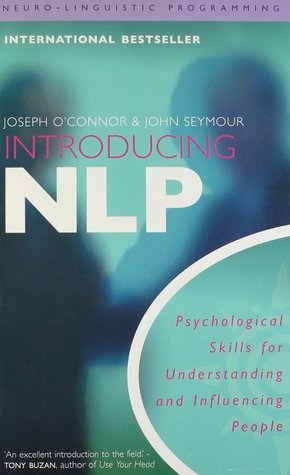For anyone coming new to this emergent field of self-improvement this book will be the perfect introduction. Having said that it’s a getting a bit ‘long in the tooth’ now! Nevertheless, it provides a comprehensive and very readable outline of the fundamental principles, that haven’t changed. As is commonly the case with introductory NLP texts, it opens with a brief outline of the history of the development of NLP beginning with the early association and subsequent collaboration between John Grinder and Richard Bandler and the influence that Gregory Bateson had on this process. It then progresses to examining, in a series of chapters, the basics, examples of which are; communication, rapport, pacing and leading, representational systems, predicates, sub-modalities, anchors, feedback, the Meta Model, nominalizations, presuppositions, the Milton Model, metaphor, reframing, timelines, conflict and congruence, metaprograms, Phobia cure, the Swish pattern and modelling.
As has been said before, there are some, what might be described as, ‘dry sections’ in the book. This cannot be helped; there is simply no other way to communicate the material and, overall, O’Connor and Seymour do a brilliant job. If you don’t mind ‘touchy feely new age’ writing and, I have to say, usually of U.S. origin, there are other books out there that cover similar ground but, for me, this is good ‘old fashioned’ no nonsense information delivery that is comprehensive and entertaining.
I cannot recommend it highly enough!

